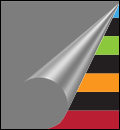RELEASE WORLD FIRST IN UNIVERSITY RESEARCH: ÉCOLE POLYTECHNIQUE DE MONTRÉAL INAUGURATES ITS THIXOMOLDING LABORATORY: A RESEARCH FACILITY FOR HIGH-PERFORMANCE MANUFACTURING

A unique facility
The industrial-scale facility is set up for magnesium casting using a new technology called Thixomolding, which is similar to
the injection molding process used for plastics. The process was developed by Dow chemicals and marketed by THIXOMAT, which
licenses Husky to build the machines. Thixomolding is an efficient, clean and safe process (magnesium is a combustible metal)
designed for the economical mass manufacturing of various auto parts and electronic components such as computer or camera
housings.
Husky, a key partner
Polytechnique and Husky Injection Molding Systems Ltd. collaborate closely to advance and implement the new technology. Husky,
which supplied the Hylectric Thixosystem -- the 500-tonne press that constitutes the laboratory's core equipment -- worked
closely with Polytechnique to enable the purchase of this major installation.
"The IMI laboratory represents a major technology showcase," said Carmen Lowe, General Manager of Husky Canada. "Research conducted there will allow Husky to optimize its magnesium molding system and offer its customers a product whose combination of reliability, performance and user-friendliness will help them succeed in the emerging Thixomolding market."
IMI-NRC
Polytechnique's partnership with the Industrial Materials Institute (IMI) came about very naturally, since the objectives of
Professor Ajersch's team coincided with the mandate of the Institute. The IMI has provided laboratory and office space, in
addition to maintenance and operations staff as defined in a research agreement.
"The new facility is an asset to Canadian business, as it will help companies pick up business opportunities on the
international market," said Dr. Blaise Champagne, Director of the IMI-NRC. "We are delighted to support this initiative,
particularly since, in enabling companies to access advanced technologies, it harmonizes so well with the NRC's
objectives."
Magna International
Magna International Inc., the auto parts supplier, expressed interest in forming an association with Polytechnique to carry out
a research contract. The research contract involves improving the performance and resistance of certain alloys and materials
used in designing auto parts. Polytechnique has conducted significant traction trials in laboratory settings, research that
Polytechnique expects should result in being able to manufacture components that are lower-cost, lighter and more durable. The
automotive industry represents a key sector of the Canadian economy.
An essential partner for local firms
The Thixomolding Laboratory offers Québec and Canadian firms in the automotive or aeronautics sectors (or in any other field
calling for high-precision parts) the equipment and expertise needed to conduct preliminary trials on new products or
processes.
"Many of these companies are SMEs, and investing millions of dollars in equipment before even being able to assess a project's viability can be problematic," noted Professor Ajersch, the laboratory's head. "As such, local businesses stand to gain from the new facility, since it can help them become more competitive by allowing them to expand their product range and increase their productivity." This lab will allow such firms to assess their projects much more quickly and effectively, because the equipment is of industrial-scale, which avoids any issues of the difficulty scale up production.
An investment of over $2 million
The project is an initiative of the Consortium de recherche en fabrication industrielle à haute performance (advanced
manufacturing research consortium) made up of researchers from a number of universities and colleges. The cost of the IMI
facilities is estimated at over $2 million. A significant proportion of the budget came from the Canada Foundation for
Innovation (CFI) and the Québec Ministry of Education, Leisure and Sport, each of which contributed $800,000. Other assistance
came from private partners like Husky Injection Molding Systems Ltd., the main equipment supplier, whose sizeable contribution
allowed Polytechnique to purchase the magnesium molding system. "This kind of networking between the private and public sector
is ultimately what allows universities to fund their research," stated Mr. Papineau.
"The opening of the Thixomolding Laboratory is an excellent example of what partnerships can achieve," said Eliot Phillipson, President and CEO of the Canada Foundation for Innovation (CFI). "This investment will give highly qualified researchers access to cutting-edge facilities in which to carry out their projects and continue to make Québec and Canada stand out internationally."
Imminent research projects
The facilities are intended for use by graduate students, as well as by industry and other institutional members as part of
research contracts. The trials carried out in the Thixomolding Laboratory will become a preliminary production stage that leads
to significant technological progress for participating industries. This is a win-win situation for all, particularly the
consumers who stand to benefit from the positive spin-offs sure to spring from the application of new materials to different
contexts.
About CFI, NRC and Polytechnique...
The CFI is an independent corporation created by the Government of Canada to fund research infrastructure. The CFI's mandate is to strengthen the capacity of Canadian universities, colleges, research hospitals, and non-profit research institutions to carry out world-class research and technology development that benefits Canadians.
Recognized globally for research and innovation, Canada's National Research Council (NRC) is a leader in the development of an innovative, knowledge-based economy for Canada through science and technology.
Founded in 1873, École Polytechnique de Montréal is one of Canada's top engineering teaching and research institutions and first in Québec for the size of its student body and the scope of its research activities. Polytechnique offers courses and programs in 11 engineering specialties and conducts nearly one-quarter of university engineering research in Québec. The school has over 220 professors, nearly 6,000 students and an annual operating budget of $85 million, in addition to a $66.7-million annual research and infrastructure fund. Polytechnique is affiliated with Université de Montréal.
-30-
Information:
Chantal Cantin
Communications and Public Relations Office
École Polytechnique de Montréal
(514) 340-4711, ext. 4970
chantal.cantin@polymtl.ca
Angus McKinnon
Coordinator, Media Relations
Canada Foundation for Innovation
(613) 996-3160
angus.mckinnon@innovation.ca


